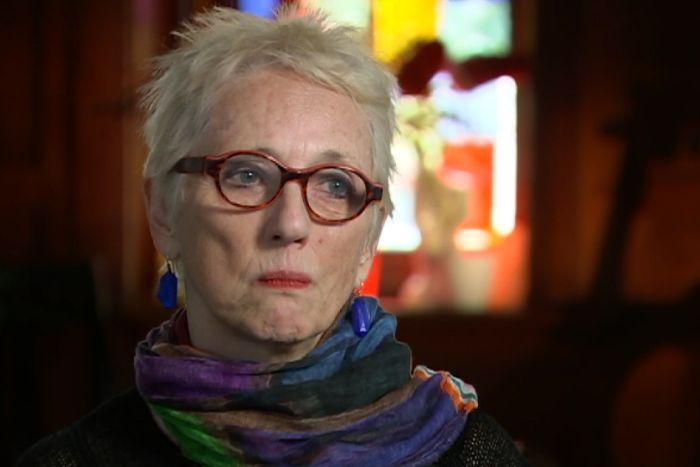Victorian Abuse Survivors Could Win Right to Set Aside "Unfair" Church Settlements
By Joseph Dunstan
The sexual abuse Phil O'Leary suffered as a child has followed him throughout his life. He cites broken relationships, abandoned career and study opportunities and a conviction for white collar crime as just some of the legacies of his abuse at the hands of a Catholic priest. "I've had this trouble with being able to stick at things … it was just one crisis after another over the past 30-odd years," he says. The abuse started when the priest began to visit his family home when he was 14. "[The priest] groomed my parents as much as me, to inveigle himself into the family, being invited over for dinner and lunches, things like that," Mr O'Leary says. He says when his father later learned of the abuse, he was "horrified to learn that he was granting [the] hospitality of the family to a monster". A boy dressed in a school uniform smiles in a black and white photo.
When Mr O'Leary went to the Catholic Archdiocese of Melbourne in 2008 seeking compensation over the abuse, he was offered and signed an agreement awarding him about $40,000. Part of that settlement included a deeds of release agreement in which he waived his right to take any further legal action over the abuse. He also received a top-up payment from the archdiocese in 2017 of about $31,000. He describes the 2008 settlement process as "coercive, in a subtle way". "It was subtly said to me 'do you want to be in court being cross-examined, day after day, over the minutiae of what had happened to you?' It didn't really appeal to me," Mr O'Leary says. Ten years later, he one of many Victorian survivors of institutional child sex abuse who hope they will be able to put those old settlements aside and pursue fresh compensation. Those hopes rest on whoever wins the November state election drafting new legislation which would allow survivors to set aside deeds of release agreements signed in circumstances that were unfair, or when the institution the agreement was signed with misled them. Survivors 'waiting in the wings' for new laws Lawyer Judy Courtin, an advocate for survivors of institutional child sexual abuse, says there are likely "hundreds" of Victorians like Mr O'Leary "waiting in the wings" to pursue fresh compensation if the law is changed. She says any new legislation should consider factors such as the adequacy of the compensation provided, whether the survivors had legal representation or not, and whether the institution had concealed the extent of its knowledge of the abuser's behaviour.
"What knowledge did the institution have of the particular offender at the time of the deed of release and the settlement," Dr Courtin says. "[The legislation] needs to treat this group of victims and survivors as a special group; it's a unique class of claimants. "They need to be separated out and differentiated from deeds of release that are being signed in car accidents, workplace injuries … because with those types of settlements the decision maker is a third-party, independent person or in a court, and of course all those decisions are reviewable, unlike the decisions that were made in church institutions." Survivors are not able to simultaneously pursue a civil claim for compensation while engaging with the national redress scheme. However, those who have already signed settlements in the past are able to access top-up payments through the scheme. Mr O'Leary says those limitations are why he wants to pursue compensation for his abuse through the courts instead. "The redress is clearly a train wreck, no one knows what's going on … the only way to get justice is to go to court," he says. Catholic church 'will deal with each writ on its merits' Since January 2017, the Catholic Archdiocese of Melbourne has paid out $10.9 million in additional payments to 230 survivors who had previously received compensation payments from the church. The archdiocese says the average total payment made to those survivors is $89,465, above the average payment expected under the national redress scheme of $76,350. "The archdiocese also supports the right of survivors to apply to the national redress scheme for an additional payment notwithstanding the existence of a prior deed of release," a spokesperson for the archdiocese says. "As to any writ that may be issued against the archdiocese, the archdiocese will deal with each writ on its merits." The redress scheme used by the Anglican Diocese of Melbourne has a policy of setting aside deeds of release contained in past settlements "if it would be fair and equitable in the case at hand". Coalition pledges to introduce legislation The cause appears to have bipartisan support, but only the Coalition has committed to introducing legislation if it wins office in November. "There's already a jurisdiction in our courts to set aside past agreements, but we would want to make sure that those rules would not operate so onerously," Shadow Attorney-General John Pesutto says. "Where somebody can demonstrate that a past settlement was achieved by coercive, improper or misleading conduct, that they could proceed with that claim … that would be — in our view — a very desirable outcome." Mr Pesutto says cases where institutions knowingly provided false information to survivors of abuse seeking compensation would likely be covered in any legislation put forward by the Coalition. "I think that the changes that we would pursue would not be specific to any organisation or victim," he says. "So if the conduct was misleading, improper or coercive in any way it shouldn't matter who did it, nobody should be excluded on that basis in our view." In a statement, Attorney-General Martin Pakula says similar legislation recently adopted in Queensland in March to allow existing deeds of release to be set aside "appears to have some merit". "I've asked the Department of Justice and Regulation to engage with their counterparts in the Queensland Department of Justice to better understand the operation of those laws," Mr Pakula says.
|
.
Any original material on these pages is copyright © BishopAccountability.org 2004. Reproduce freely with attribution.


